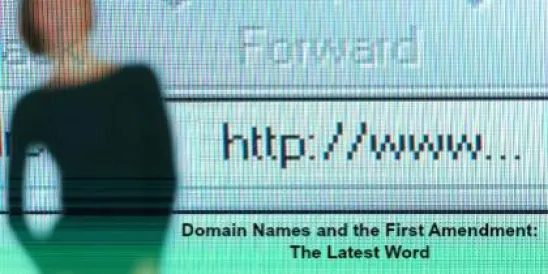The intersection of domain names and the First Amendment is not new. Indeed, in the early days of the domain name system, courts considered the issue of whether a domain name registrar could prohibit the registration of domain names on the basis of content – for instance, domain names containing profanities. See Nat’l A-1 Advertising, Inc. v. Network Solutions, Inc., 121 F. Supp. 2d 156 (D.N.H. 2000); Seven Words LLC v. Network Solutions, Inc., 260 F.3d 1089 (9th Cir. 2001). However, the U.S. Court of Appeals for the Fifth Circuit recently was confronted, in Gibson v. Texas Dep’t of Insurance, with a new twist on the First Amendment as it applies to domain names: whether a particular domain name is pure “commercial speech” (entitled to only limited First Amendment protection) or “expressive speech” (entitled to more extensive protection).
The Texas Labor Code prohibits the use together of the words and phrases “Texas,” and “Workers Compensation,” or similar abbreviations. Nonetheless, Gibson, a workers compensation lawyer in Texas, registered the domain name texasworkerscomplaw.com. On the associated website, Gibson discusses matters relating to Texas workers compensation law and, of course, advertises his law practice. The Texas Department of Insurance took offense to Gibson’s domain name, and sent Gibson a cease and desist letter. Gibson, being a lawyer, sued in federal court, alleging that the Texas Labor Code restrictions violated his constitutional rights.
The Fifth Circuit, in an interesting opinion, addressed the commercial speech/pure speech dichotomy inherent in domain names used by commercial enterprises, but artfully dodged the question of whether the domain name was in fact commercial speech. Instead, the court first analyzed whether, if the domain name was in fact commercial speech (which can under some circumstances be restricted), it was the sort of commercial speech that the Texas Department of Insurance could restrict.
The court found, correctly, that commercial speech can be restricted only if it is “inherently likely to deceive.” The state argued that Gibson’s domain name implied a connection with or approval of the state. The Fifth Circuit dispensed with the state’s argument, noting that since there was nothing to suggest that texasworkerscomplaw.com could not be viewed in a non-deceptive fashion (a truism), the state could not restrict the use of the domain name as commercial speech.
There is a second exception allowing a restriction on commercial speech: A state may regulate non-deceptive commercial speech if the restriction “advances a substantial state interest” and is narrowly tailored to serve that interest. On this issue, the Fifth Circuit sent the case back to the federal district court to develop a factual record. It seems unlikely that the Texas Department of Insurance will prevail in the end, as the statute on which its objection is based is vastly overreaching, and would prohibit anyone providing services relating to workers compensation in Texas from registering domain names that accurately describe what they do. For instance, a physician who performs workers compensation examinations could not register texasworkerscompdoc.com (as of this writing, this domain name is available for the taking).
Obviously, such a domain name is not misleading, and there is no legitimate basis upon which the state can restrict it. Domain names are often a form of speech. Just because they are a relatively new format of expression does not change this fact and give the government a basis to attempt to restrict their use.



 />i
/>i

